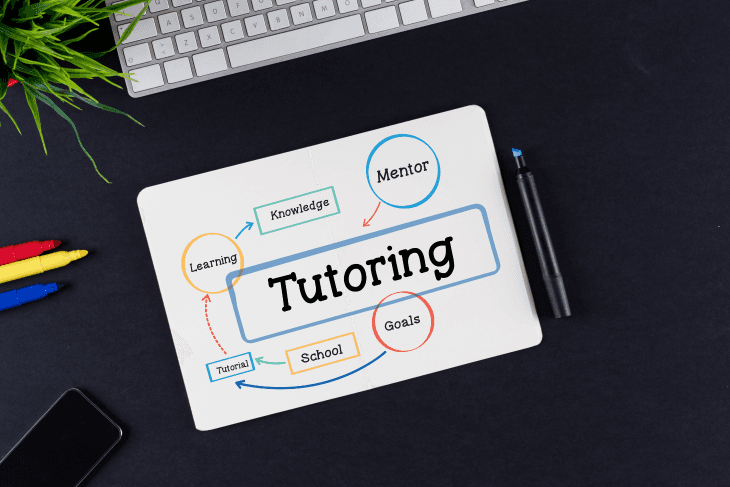In today's interconnected world, online tutoring has emerged as a transformative approach to education, providing students with tailored learning experiences outside the traditional classroom setting. This blog draws on the latest insights from the Education Endowment Foundation's guide to effective tutoring, illustrating how best practices in online tutoring can significantly boost educational outcomes, particularly for students needing additional support.
Embracing the Digital Frontier in Education
Online tutoring has become a cornerstone in the educational landscape, offering bespoke solutions that cater to the unique needs of each student. The advantages are clear:
Flexible scheduling.
Access to a broad range of expertise.
Personalised learning paths.
- The Impact of Online Tutoring
Research underscores the effectiveness of online tutoring. Students make up to five months of additional progress through one-to-one sessions and up to four months with small group tuition. These sessions are particularly potent in literacy, with a pronounced impact noted in primary education settings. By aligning closely with classroom teachings, online tutoring not only reinforces learning but also efficiently fills knowledge gaps.
- Strategic Session Scheduling
The timing and frequency of tutoring sessions are crucial. Optimal results are achieved with regular, short sessions spread consistently over six to twelve weeks. This model suits younger learners exceptionally well, helping to maintain engagement and consolidate learning without overwhelming them.
Key Principles of Effective Online Tutoring
For online tutoring to be effective, it must adhere to several foundational principles, ensuring that every session is impactful and contributes positively to a student's educational journey.
- Aligning with Curriculum Needs
One of the greatest strengths of online tutoring is its ability to fit seamlessly with the school curriculum. Tutors can employ diagnostic assessments to pinpoint specific areas where students struggle, allowing for targeted teaching that addresses these gaps directly. This approach ensures that tutoring is relevant and complements ongoing classroom learning.
- Sustainable Tutoring Practices
Creating a sustainable tutoring model requires regular assessment and adaptation. This includes continually gathering feedback from all stakeholders—students, parents, and educators—to constantly refine approaches and techniques. Ensuring that tutoring practices evolve in response to these insights is critical to maintaining their effectiveness.
The Role of Technology in Online Tutoring
Advancements in educational technology have greatly enhanced the scope and effectiveness of online tutoring. Platforms that facilitate video conferencing, interactive sessions, and real-time feedback play a crucial role in creating an engaging learning environment that mimics the dynamism of a physical classroom.
- Building a Community of Learners
Online tutoring offers more than just academic instruction; it builds communities. Tutors can foster a sense of belonging and cooperation among students, encouraging a collaborative learning environment beyond geographical and social boundaries.
Conclusion: Towards a Brighter Educational Future
As we continue to navigate the challenges and opportunities digital education presents, the role of online tutoring will undoubtedly grow. By adhering to established best practices and embracing innovative teaching methods, online tutoring can provide a vital lifeline for students needing extra help, ultimately levelling the educational playing field and ushering in a new era of inclusive learning.
The transformative power of online tutoring is evident—it is not just about teaching; it's about changing lives through education. As we harness these tools and strategies, we move closer to a world where every student has the support they need to succeed.
BLOG




